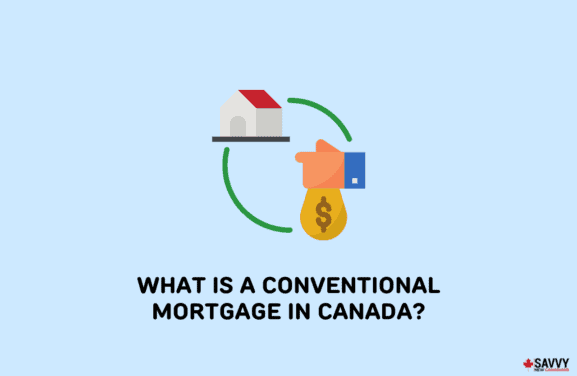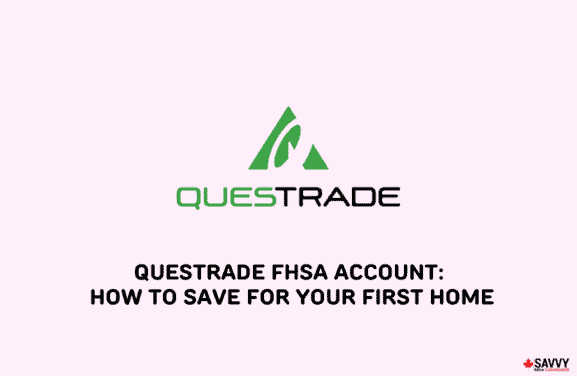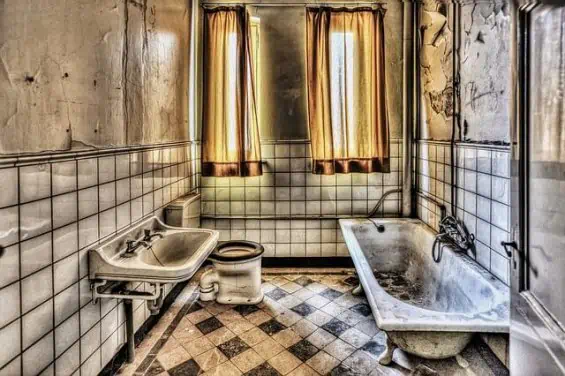Buying your first home is an exciting time. If you’re in this situation, you’ll want to know about getting a first-time mortgage in Canada.
There’s a lot to consider, and it can seem overwhelming when you first start looking for a mortgage.
You will need to find out about the types of mortgages for first-time buyers in Canada, down payments and how they are calculated, interest rates, and more.
This guide looks at mortgages for first-time home buyers in Canada to provide all the information you need.
What to Know Before Applying for a Mortgage
There are several things to remember before applying for a mortgage in Canada.
- You will need to have a down payment of at least 5%. If the property costs more than $500,000, your down payment will need to be an even higher percentage. We’ll look closer at down payments later.
- There are several types of mortgages available, including fixed-rate and variable-rate mortgages. You’ll want to research the market and learn about the mortgages being offered and the interest rates you can expect to pay.
- You’ll need to determine how much you can afford to spend on mortgage payments. Create a budget and determine how much you can spend each month before applying for a mortgage.
- Check your credit score before applying for a mortgage. The credit score is one of the factors that will affect whether you can qualify for a mortgage in the first place.
- Depending on the cost of the property you want to buy, you may need to save more money for your down payment and mortgage payments.
- Explore the programs and incentives available for first-time buyers to see if they can help, which we’ll look at later.
Types of First-Time Home Buyer Mortgages
If you decide to get a mortgage for your first home, consider the types of mortgages available. There are two main types: fixed-rate and variable-rate mortgages.
Fixed-Rate Mortgages
The rate is fixed for the mortgage term, so the monthly payments will also be the same.
With these mortgages, there is no need to worry about fluctuations in interest rates. If rates go up, it can be a good option. However, if rates drop, you may pay more than you would on a variable-rate mortgage.
Different lenders offer different types of mortgages. For example, you could find three-year fixed-rate mortgages, but the most popular is a five-year fixed-rate mortgage.
Variable-Rate Mortgages
As the name suggests, variable-rate mortgages change over the mortgage term. They are tied to the lender’s prime rate, which varies depending on the Bank of Canada’s policy interest rate.
The prime rate will go up and down, affecting your mortgage rate and payments.
If you think rates may go down over the next few years, you may opt for this. But you should also be prepared for rate increases.
What is the Minimum First-Time Home Buyer Canada Down Payment?
The down payment is one of the most important factors to consider when getting a mortgage for a first-time buyer.
The first-time home-buyer down payment is the same for any type of buyer. However, its size will depend on the cost of the property.
5% Down Payment
The minimum amount you must provide in Canada for any home is 5% of the purchase price. However, this only applies to properties with purchase prices of under $500,000.
10% Down Payment
Suppose the property price is from $500,000 to $1 million. The minimum down payment is 5% for the first $500,000 and 10% for anything above $500,000.
20% Down Payment
If the property costs over $1 million, you must provide a 20% down payment for the entire cost.
Down Payment Examples
If you are buying a property valued at $495,000, your down payment would be 5% of the total amount:
- 5% of $495,000 = $24,750
If you are buying a property valued at $800,000, you will pay a down payment in the following way:
- 5% of $500,000 = $25,000
- 10% of $300,000 = $30,000
- Total = $55,000
If the property is valued at $1,250,000, you will pay 20% of the total cost as a down payment:
- 20% of $1,250,000 = $250,000
A Larger Down Payment Means a Smaller Mortgage
One thing to keep in mind is that these are minimum amounts, and you may want to make a larger down payment.
You can reduce the amount you borrow by making a larger down payment.
Related: Ways to save for a home down payment in Canada
What is the Average First-Time Home Buyer Interest Rate?
Interest rates change all the time. Even though lenders offer different rates, they are all essentially based on how the Canadian economy is doing.
For example, variable-rate mortgages are linked to the Bank of Canada’s overnight rate.
At the time of writing, current rates for a five-year fixed-rate mortgage range from 6.3% to 6.6% from the big banks.
Three-year fixed-rate mortgages are slightly lower, from 5.8% to 6.4%, and variable-rate mortgages (closed) are about 6.7%.
Compare Mortgage Rates
The above figures give you some insight into average rates. However, rates change all the time. By the time you read this, they may be higher or lower.
That’s why it’s so important to compare rates. While most rates will be fairly similar, there will always be differences, which can greatly impact the overall cost of your mortgage.
How to Apply for a Mortgage
These are the steps you should follow to apply for a mortgage in Canada:
Prepare
Determine how much you can afford to spend on your property by looking at your income, debts and expenses.
Work out the down payment you will need to apply for a mortgage. If you haven’t saved a down payment, start saving up for one.
Look at programs and incentives that may be available. Then find out your credit score, and improve it if necessary.
Choose a Mortgage Type
Do you want a fixed-rate or variable-rate mortgage? There are also open and closed mortgages, with open being more flexible but usually more expensive.
Compare Lenders
Explore mortgages for first-time buyers. Compare rates from the major banks, credit unions, and online mortgage lenders, and look at fees, terms, open and closed options, and more. Keep a spreadsheet to track your research.
Get Pre-Approved
When you have decided on a mortgage, you can apply to get pre-approved. This means you know how much you are qualified to borrow, and you can then work out your estimated monthly payments.
After this, the interest rate is then locked in. It can be up to 130 days, depending on the lender.
You will usually need to provide a form of ID, proof of employment, information about your assets and debts, and prove that you can afford it via a stress test. The lender will also carry out a credit check.
Once you are pre-approved, you can start searching for a property.
Apply for the Mortgage
When you are ready to buy, you can get fully approved by completing a full application.
Being pre-approved does not guarantee that you will get approved for the mortgage. It depends on other factors, including the property’s condition, which must meet the lender’s standards.
The mortgage underwriting process is carried out, and the lender may want updated income documentation. They may also arrange an appraisal to determine the property’s fair value.
Then pre-closing takes place, where your lawyer and lender work together. Finally, when all is ready, the lender transfers the funds to your lawyer.
First-Time Home Buyer Programs and Incentives
If you are a first-time home buyer, you may be interested in several programs and incentives that can help you get on the housing ladder.
There are currently a few programs that might help you that the government provides. You can find full details of these on the Canada.ca website.
The Home Buyers’ Plan (HBP)
With the HBP, you could withdraw money from your registered retirement savings plan (RRSP) tax-free, up to $35,000, to help buy your home. A couple can withdraw up to $70,000 if eligible.
Learn more about home buyers’ and lifelong learning plans.
The Home Buyers’ Amount
With this program, you could receive a non-refundable tax credit, which is expected to increase to $1,500 in 2023.
The Home Buyers’ Amount is calculated by multiplying $10,000 by the lowest federal personal income tax rate of 15%.
GST/HST New Housing Rebates
With this, you might be eligible for a rebate on a portion of the tax you pay when buying your home.
First-Time Home Buyer Incentive
With this incentive, you could receive from 5% to 10% of the purchase price to add to the down payment and reduce the size of the mortgage.
There are various eligibility requirements that you can see in full here.
For example, your annual income must not exceed $120,000 (or $150,000 if you are purchasing a home in Vancouver, Victoria or Toronto).
A recent addition to these programs is the Tax Free First Home Savings Account which allows you to contribute up to $40,000 toward a home purchase on a tax-free basis.
FAQs
No one loan is best for first-time home buyers, and it depends on your financial situation. However, five-year fixed-term mortgages tend to be popular.
Your mortgage will be affected by the amount you need to borrow, the size of your down payment, the type of mortgage and the interest rate.
Mortgage rates are not lower for first-time buyers, but there are several programs and incentives that can help you.
The main thing is to avoid buying a property out of your budget. If you borrow more than you can afford, you may struggle to pay your mortgage.
Related:



